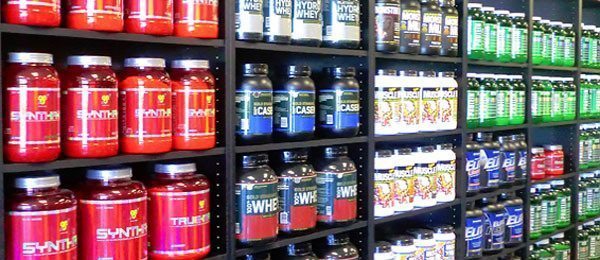A Basic Guide to Workout Supplements

You heard right – you are what you eat! The saying “muscles are made in the kitchen” certainly resonates with many fitness experts and specialists, many of whom estimate that one’s diet constitutes up to 80% of the body’s muscle vs. fat composition, while exercising and getting adequate rest is just the icing on the cake.
A healthy, wholesome diet is essential. Generally, most dieticians and trainers advocate for meals that are high in lean proteins, complex carbs, fiber, and nutrients that are only found in dark green vegetables. However, we will not be covering dieting in this article. Our objective here is to provide you with the basics on workout supplements.
Note: a healthy diet is a fundamental foundation necessary for these supplements to be effective.
Protein powder:
This is a no-nonsense supplement you undoubtedly are already familiar with. Most effective when used after weight-training and resistance workouts, this substance is already prevalent in our daily diets. It is by far the most widely-used workout supplement by individuals looking to build muscle, retain mass, develop lean muscle, and increase strength.
Whey protein is the more common version found in most powders and protein drinks. It is quickly metabolized by the human body, and will be almost entirely absorbed into the bloodstream within 20 minutes of consuming this protein. We prefer this version for an after-workout shake.
Casein protein has a slower absorption rate with most protein synthesis occurring after 3-4 hours following consumption. This version is a fantastic option if you like your protein drinks hours after your workout, or if you want to consume some before going to sleep.
Plant proteins are derived from plant matter and are a better option for those who are sensitive to other options (upset stomach). Most plant proteins are more easily digestible in comparison to whey and casein.
Glutamine:
This amino acid is a naturally-occurring substance found in the muscles of the human body. It is the primary transporter of nitrogen to your muscle cells, which help muscles to recover after intense training. This substance also naturally encourages your body to secrete human growth hormone, aiding your body in metabolizing fat and fostering more muscle growth. Finally, glutamine has anti-catabolic properties that reduce the rate at which your body breaks down your own muscles.
Creatine:
Although this supplement is considered to be slightly more controversial than the above mentioned substances, creatine still remains one of the most popular options used by fitness gurus and trainers worldwide. Similar to glutamine, creatine is naturally-occurring in the human body and aids in the production of adrenosine triphosphate (ATP). ATP provides the energy needed for muscle contractions.
This increase in the production of ATP in the body’s muscle cells allow for us to train harder and heavier. Creatine also increases glycogen levels in muscle cells, which allow our muscles to endure longer workouts. It is by far one of the most commonly used substances to gain mass and strength, and has proven to be highly effective when used correctly. Some dieticians claim that it puts extra stress on our livers and kidneys, but many studies have shown healthy liver/kidney functioning in individuals taking creatine.
Most experts recommend loading, maintenance, and wash-out phases, during which the user spends some weeks on creatine and some weeks off. To find out more about the benefits of creatine loading and phasing, click here.
BCAAs:
Finally, we wanted to include BCAAs, or branched-chain amino acid supplements into our “essentials” category. Although this supplement can be beneficial to every fitness enthusiast, we find it especially useful during our cutting phases. When trying to slim down around the waist and cut down on caloric intake, we recommend consuming BCAAs to prevent muscle loss. When we go through dieting phases, our bodies are consuming both fat and muscle storages. BCAAs further prevent the catabolic process our bodies go through, allowing us to lean out while retaining most of our hard-earned muscle mass.
